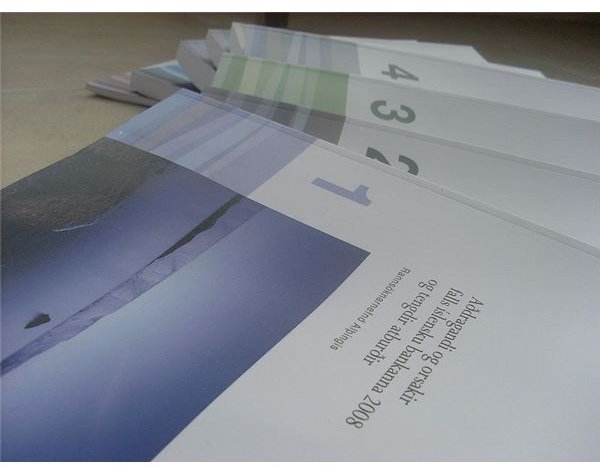What Is Forensic Accounting: Its Significance in Regaining Public Trust
Accounting and Auditing Initiatives to Detect Financial Fraud
Investigative or forensic accounting is a combination of accounting and auditing skills that aims to analyze relevant financial information in order to detect fraud. The objective is to come up with timely and accurately documented evidence that can be suitable for use in court. The strength of such evidence serves as the basis for public and legal deliberations to resolve a matter under litigation.
The work involved in investigative accounting deals mainly with–but can go beyond–determining the economic loss sustained and suffered by an aggrieved party or parties. It usually stems from breach of contracts or fraudulent acts perpetrated by the accused.
The investigating accountant is tasked to explain the significance of the accounting evidence presented to the judge and jury to help them clearly understand that a crime was indeed committed. If proven, the verdict is always based on the premise that there is betrayal of public trust.

Comparison of Duties and Responsibilities
When people ask what is forensic accounting all about, explanations delve into the nature of accounting work performed by the accountant. As it falls into a different category of the accountancy profession, the tasks performed are quite different from those undertaken by a traditional internal or external auditor.
-
The latter’s main responsibility is to ascertain compliance with internal control measures that are instituted to safeguard company assets by reviewing, scrutinizing and testing the accounting documents. An internal auditor’s chief objective is to ensure that proper checks and balances were utilized in the preparation of fair and accurate financial reports. The external auditor, on the other hand, renders an independent review and assessment of the financial statements in order to attest to their accurate and fair presentation, in accordance with the generally accepted accounting principles.
-
It is also important to emphasize that the investigative accountant’s main concern is to detect fraud , as opposed to the duties of an internal auditor. The latter may or may not uncover fraud during the process of determining the entire workforce’s adherence to standards and policies, since his main concern is to review the degree of compliance within the organization. However, if the traditional auditor uncovers fraud in the course of performing his duties and responsibilities, he is expected to pursue the matter for purposes of making proper recommendations to management.
The Factors that Gave Rise to Investigative Accounting

Forensic accounting originally stemmed from the need to curtail and suppress the rising numbers of corporate crimes. The effects of fraudulent acts through accounting manipulations affect the financial welfare of investors and the capital market as a whole. In fact, the repercussions of “white-collar crimes” in the economic well-being of a nation also brought financial despair to other countries.
Wealth became unjustly diverted and unevenly distributed to a point at which there were no economic balance and growth, because it benefited only the unscrupulous few. Such deceitful acts became detrimental to a business environment that largely encourages companies to trade their stocks to the public.
The sophistication of cleverly schemed white-collar crimes was executed with such skill and professional expertise that it eroded the security of vital business sectors, particularly the banking systems and financial institutions. The need to specialize in investigative accounting as an aid to the prosecuting team became evident as cases against financial manipulators did not flourish in courts. In addition, competency in the use of computer technology was essential in tracking and uncovering fraud perpetrated by way of electronically manipulated documents and financial instruments.
Moreover, the integrity of the supposedly independent external auditors who issued certifications that attested to the fairness of financial reports became questionable. Said certifications were being made even if the figures were untrue and misleading. These practices were perceived either as a matter of incompetence in investigating fraud or as an act of abetting the fraudulent corporations in misleading the public investors and lenders.
As a matter of fact, the forensic accountant as an independent investigator is also tasked to determine the degree of the CPA’s participation in submitting financial statements that tend to mislead.
Inasmuch as every sector or industry is supported by an accounting system, whether manual or computer based, the analytical skills of a separate and independent set of expertly trained investigative accountants have become necessary in every fact-finding team. Their role as a new breed of accounting professionals is to provide litigation support by expertly explaining the accounting manipulations and gather relevant evidence that the courts of law will uphold.
Forensic accountants play important roles in showing proof of financial motives and methods employed in order to perpetrate white-collar crimes in different levels. Their opinions are held in court as free from bias since they have gained additional training as investigative examiners to support litigations.
Investigative accounting is regarded as a tool for regaining public trust, which was manifested by the accountants who were instrumental in providing sufficient evidence to bring down the spate of white collar crimes that beset and plagued the country in the recent past. To gain more insights, readers are encouraged to learn more by reading a separate article entitled History of Forensic Accounting.
Reference Materials and Image Credit Section
Reference Materials:
- Owojori AA and Asaolu TO. The role of forensic accounting in solving the vexed problem of corporate world, in European Journal of Scientific Research. Vol. 29, No. 2
- Zysman, A. Forensic accounting demystified
Images from Wikimedia Commons:
- BiT/Wikimedia Commons
- [U.S. Navy/Wikimedia Commons](/tools/Milligan with Books - work of the U.S. federal government– http:/commons.wikimedia.org/wiki/File:Milligan_with_books.jpg)
- Himugk/Wikimedia Commons
